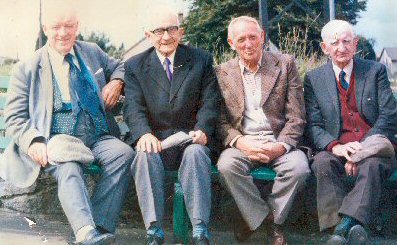One pleasant Sunday morning in June my wife Mary – then teaching at Etobicoke, outside of Toronto – and I decided to drive to Oshawa to visit a friend with whom I had worked at the sawmill in Vancouver.
On the way back to
We had barely entered the apartment when the phone rang downstairs. The landlady answered.
‘It’s for you, Professor!’ she called.
I raced downstairs. It was Mary Ann. Hughie was dead.
The feeling of remoteness and isolation I felt in the past when faced with a crisis immediately returned to me. I had to force the emotional impact of Hughie’s death into the background as I tried to focus on immediate external necessities.
The funeral was on Wednesday. I’d have to arrange to fly to
I was preoccupied with such trivialities and I knew it was a mental state I had learned about in the classroom, from the lecture podium, from textbooks and from colleagues. It was a defence mechanism and it was an attempt by the mind to block, to ward off, to deny, to refuse to accept or to defer acceptance of the unacceptable. It was no longer a matter of mere academic or scientific interest.
It was real. It was happening to me.
It was the first death in our family.
